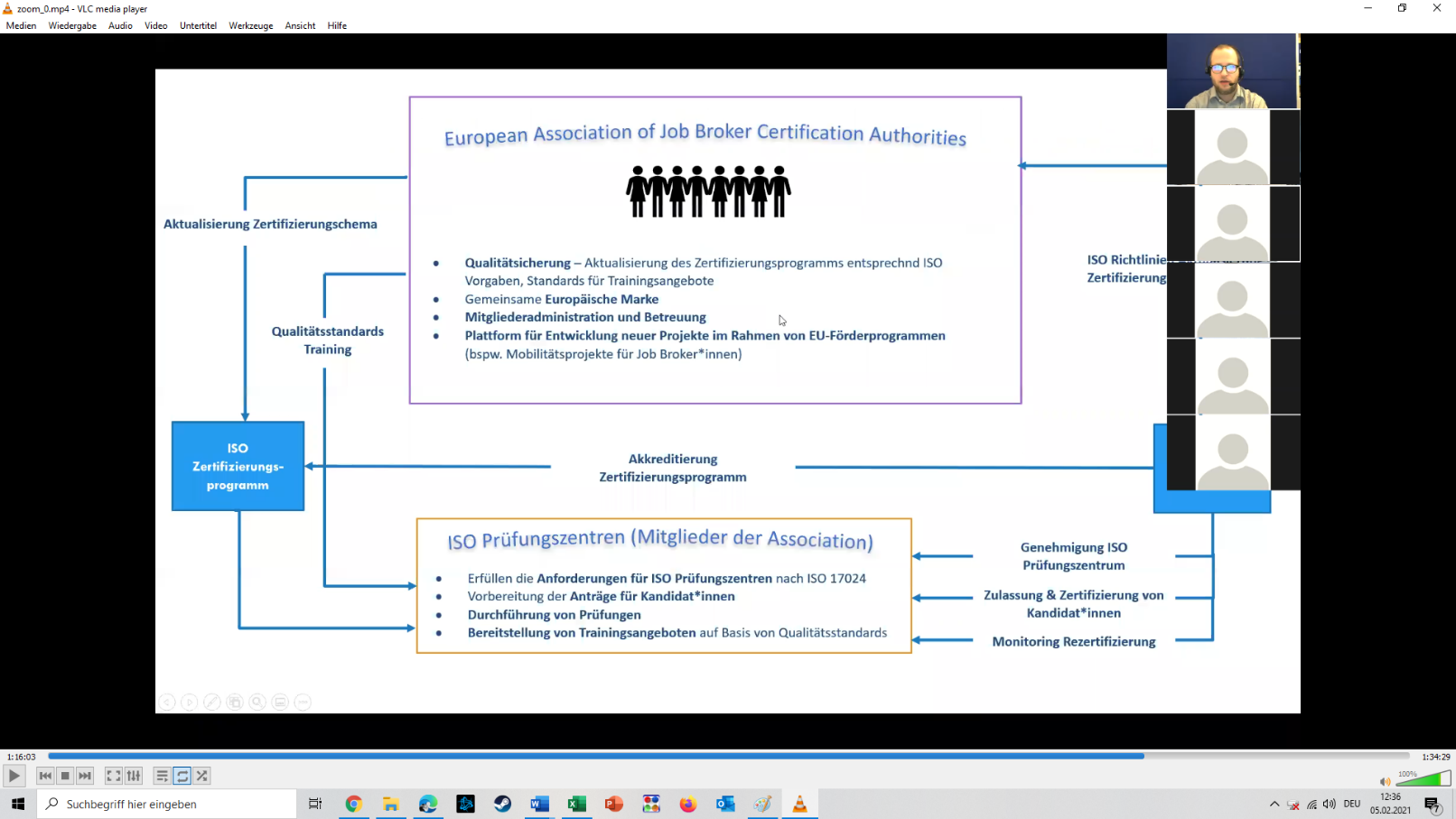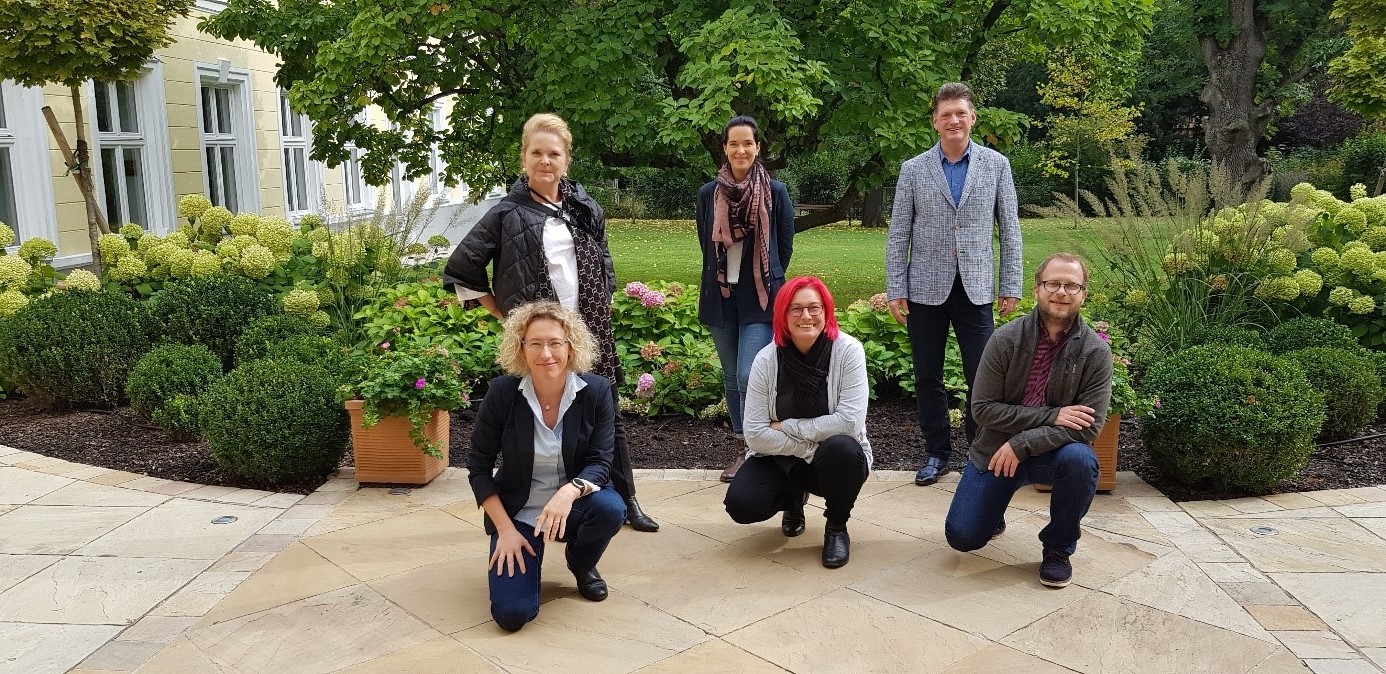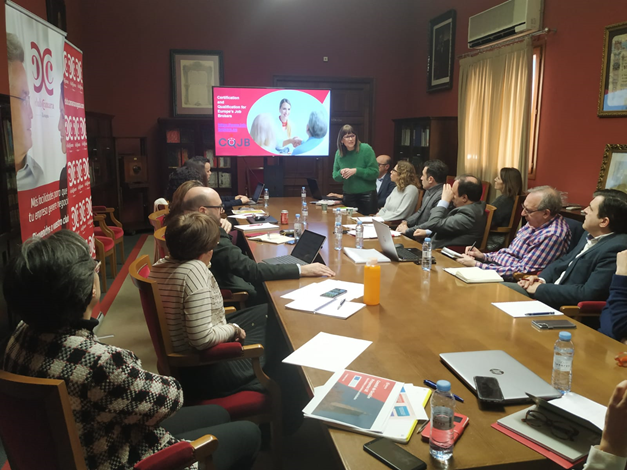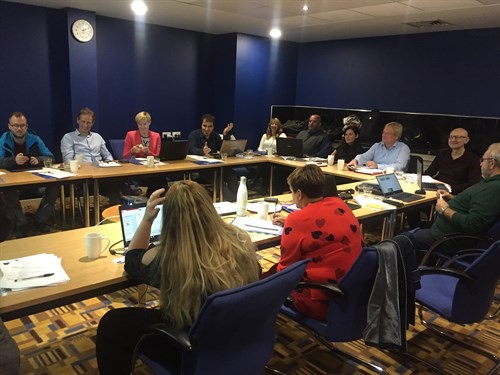On the 17th of December 2020 the final conference of the “CQJB – Certification and Qualification for Job Brokers” took place. The conference was initially scheduled to take place in September in Larissa face to face in a conference room with the participation of all partners. However, due to the restriction for avoiding the spread of the pandemic, the plans have changed and the project had been granted three months extension. Thus, it was decided for the conference to take place closer to the end of the project which was December 2020, and since Greece on the time was in a lockdown due to the second wave of COVD-19 the organisation of the conference was transported online.
News
On December 4th abif conducted an online information event for Job Brokers and interested Stakeholders. The “Quick Update – Job Broker” intended to inform about the European Job Broker Joint Qualification (qualification profile, curriculum & training materials, ISO-17024 certification scheme) and to give an outlook about plans of the partnership for the future and the respective European Association of Job Broker. In addition abif also wanted to use the opportunity to gather a broader feedback from the target group. A total of 33 participants from Austrian and also Germany, mainly consisting of managers or practitioners who work in frame of public funded employment programmes, many in the role of a Job Broker, but also representatives from stakeholders (Austrian Trade Union, Educational Counseling Lower Austria, University of Teacher Education Lower Austria, Youth Coaching) took part in the event. After a short presentation by Martin Stark a discussion on potential benefits of training and certification opportunities for Job Brokers, but also on concerns the target group might have, was facilitated. Only a small number of participants expressed concerns, especially about the potential costs and whether such certification could become mandatory for job brokers. The majority welcomed the provision of specific training and certification opportunities for Job Brokers very much and is looking forward to the implementation of Job Broker trainings and certifications on a larger scale in Austria.
The piloting of CQJB training material started 16 January and finished 1 June 2020, it was conducted each Friday and once on Thursday between these dates (8 sessions totally). Each session was half a day (from after lunch until late evening, 6-7 hours in average). The training material for CQJB is unique and covers job brokage principals. It was developed by the project partnership:
In October 2020, the first Austrian pilot group took their exam for the ISO 17024 certification for Job Brokers. Thanks to the great real-time support from our Greek ISO partner ACTA we managed a perfectly smooth conduct of the first ISO examination at our examination center at the office of abif. All four Job Brokers from the Vienna based Job Brokering provider Job-TransFair passed their exam with great success. Well-deserved, considering the effort they made. Despite high unemployment numbers due to the Covid-19 pandemic which caused extremely busy months for the Job Brokers all of them were very committed to the training and the preparation for the exam. Understandably they were relieved and happy to pass the exam after all the hard work. But not only the examinees were relieved but also the examination team of abif, because everything worked perfectly in this first pilot examination in Austria.
CQJB Workshop took place in Folkuniversitetet, Uppsala, Sweden 22 September 2020. The workshop was dedicated to Certification and Qualification for Europe’s Job Brokers project, its future implementation in Sweden.
Pilot Activities in Greece took place from March till May 2020 during which participants familiar with the various Job Brokerage activities have been trained and proposed revisions for the CQJB material. The pilot activities in Greece were welcomed with great enthusiasm, even if those had to be switched to an online course in order to comply with social distancing measures and avoid the spread of the pandemic.
The workshop in Greece has been organised and realized by DIMITRA Education and Consulting, the coordinator of the project. Since it took place during the social distancing measures era, imposed by the COVID – 19 pandemic, the workshop could not take place with open invitations as it would have been a risk for unregistered people to attend and end up with a room with more people than it would have been safe for avoiding the spread of COVID-19.
The agenda of the workshop included the overall presentation of the project and the detailed presentation of the CQJB training program and certification. In continuance and in order for the participants to get the best possible idea about the outcomes a workshop took place with indicative classroom activities as well as with showcasing the self and work based learning activities.
The participants seemed very interested about the project and its activities and they were very eager to learn more and participate in future CQJB activities. Interesting questions were asked and vivid discussion took place at the end of the workshop. Furthermore, the partners really enjoyed coffee networking as they got the chance to get to know each other better and see how they can cooperate under the CQJB umbrella.
The facilitator of the event was Vaggeli Antouela and had been supported by Vaso Anastasopoulou and Maria Koutiva, who have been involved in the CQJB project from the beginning.
The Chamber of Commerce of Zaragoza (Spain) was the first partner to complete the piloting period despite all the inconveniences and unforeseen events caused by the COVID-19 crisis in the country.
The Chamber involved 10 professionals, all of them came from public organisations. Nine out of the ten candidates work in the Regional Public Employment Services, among them, one is the EURES Counsellor of the region. The tenth is the Head of Employability Service of the Chamber of Commerce of Zaragoza.
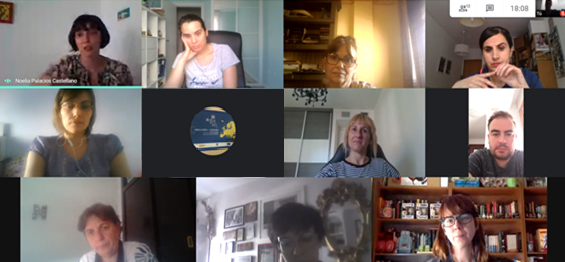
The qualification and certification process were not easy to develop. Once everything was ready to start with face-to-face sessions in Spain the lockdown measures at home forced to change the methodology.
In this way, the qualification process as such started on 23th March,2020. The person appointed by the chamber as mentor previously introduced the project, the aims, the new training methodology and explained how the piloting process would work. The candidates and the mentor used ‘google drive’ platform to interchange training documents and relevant information on the topic. The mentor uploaded one work area per week. Also, on a week basis, participants were given feedback and impressions were interchanged. Moreover, this mentor monitored the whole piloting process and was available by phone and mail to answer any doubt or problem that may arise throughout the process.
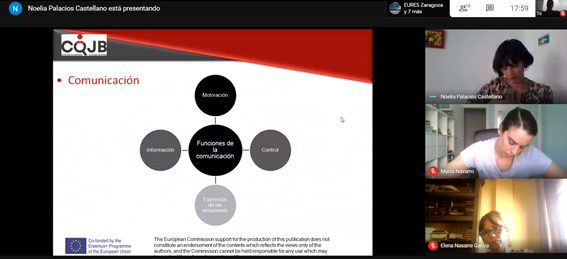
Additionally, once this qualification process was fulfilled by all the participants, an expert in the employment field carried out several online sessions. The main aim of these additional training sessions was to reinforce some topics that were identified as more challenging for the participants, share experiences, go in depth with some specific issues, solve doubts.
At the end, the certification process started with the oral exam, the interviews, that were carried out on Wednesday, 17th of June. Thanks to the support from our Greek ISO partner ACTA we managed a perfectly smooth conduct of the first ISO examination, which, of course, was carried out online on Thursday, 18th of June. All of them successfully passed the examination and became the first certified specialists in Job brokage in Spain and EU.
The pilot of the job broker training in Berlin took place between December 2019 and March 2020. A total of 14 candidates participated on that, 10 women and 4 men in the age between 28 and 61. The most candidates worked in different organisations and in different functions like job coaches, pedagogical consultants, and PR consultants. Three of them were freelancer as therapist, coach, and pastor.
The European Union's project service of the Chamber of Commerce of Zaragoza manages and coordinates the European projects in which the Chamber is involved. However, those departments and services which, according to their technical skills, are considered to be the most suitable for successfully achieving the expected results of the different projects, participate and collaborate in the implementation of these projects.
Since the very beginning of the CQJB project, the collaboration with the training and employment department was close and continuous. Additionally, the Chamber's management considered that it could be interesting for all the departments to know the project in depth. The idea is to make the whole Chamber feel identified with it, so, in the framework of the technical committee meeting (5th February 2020), the head of the EU projects service explained the actions carried out and planned related to the implementation of the pilot action of the CQJB project.
In addition to the Chamber's management (Secretary General and Directorate General), this committee includes all the organisation's senior staff (directors and heads of service), as well as those external experts who collaborate with the institution on a regular basis in the provision of certain highly specialised services. In total, 16 people attended this meeting.
The project in general and the piloting action in particular were highly valued by all areas. Additionally, the head of the Training and Employment Department anticipated some questions related to a possible future commercialisation of the certification of this new figure in the labour intermediation market.
On the 17th of October the Mid-Term Conference of the Project “Certification and Qualification for Europe’s Job Brokers (CQJB)” took place at the gsub – Gesellschaft für soziale Unternehmensberatung mbH in Berlin. The Event was designed as a multiplier event to inform and discuss about the latest developments in the project with the professional public. 40 participants followed the invitation and took part in the event.
In the first part of event, Richard Parks from Rinova Ltd. presented the Job Broker project: wherefrom the idea for this come (payment by results), what we have already done and what we will still do. Further, he presented the project approach and the main challenges.
In the second part all project partners introduced their company/organisation. They also presented the current situation on the labour market in their country/region, most important labour market challenges for the future and how/ where Job Broker could be used prospective in their countries.


Our certification agency ACTA presented the developing schemes for the certification of persons.

In the third part of the event, Dr. Barbara Philippi presented about the labour market situation in Berlin from the view of Berlin Senate Department for Integration, Labour and Social Affairs.

The feedback of the conference delegates was very positive. They got an idea about what the Job Broker is and learned something about the partner countries. They could see how the partners with all their different skills and different influences from different countries created together the Job Broker QF and that all this shaped the result and is a part of.
In February the project’s partners met in Zaragoza for a project meeting. We were hosted by our Spanish partner CCIZ, the Zaragoza Chamber of Commerce, Industry and Services. This was a successful meeting where partners focused mainly on the Qualification Profile and Learning Curriculum, a deliverable led by MMC, Cyprus and on the Certification Scheme, a deliverable led by ACTA, Greece.
In the middle of October 2018 the CQJB partners met in London to launch the new Erasmus+ Key Action 3 Project, “Certification and Qualification for Europe’s Job Brokers”. The Project follows the previous, successful, Erasmus+ Key Action 2 Project, Job Broker, that ended in August 2018. With almost the same group of partners on board, who will be introduced later in this e-zine, the new project added three new ones from Spain, Sweden and Greece to strengthen the partnership.
Working together, the partners in the previous project, had identified how accelerating policy reform in public services is impacting on the way services are organised in publicly-funded programmes to support job-seekers. These changes are 'pushing' organisations and practitioners to look beyond traditional roles of 'job coaching' and employment counselling, and extending the skills required beyond 'job-matching'. This requires more in-depth and direct work with the job-seekers and with employers to create - and sustain - job placements.
Over the next two years the partners will design, test and establish a new internationally-recognized professional qualification for Job Brokers that is to be accredited through ISO 17024. They will also explore how a professional certificate can be accredited for the purposes of the European Credit Transfer System (ECTS) that is used widely in Higher Education.







